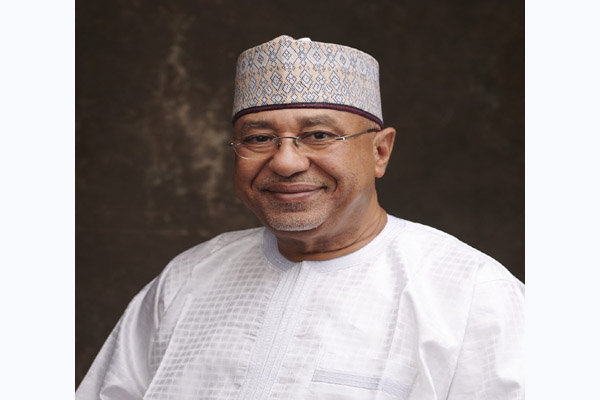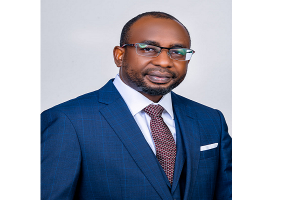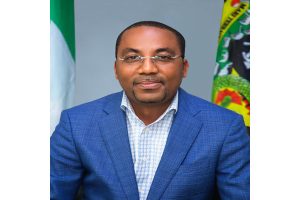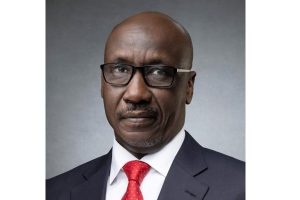…How He Earned His Place in Tinubu’s Renewed Hope Train
When Alwan Ali Hassan retired in 2011, he thought he was done with banking. But former President Muhammadu Buhari thought otherwise. Buhari recalled Hassan from retirement nine years after and appointed him Managing Director of Bank of Agriculture (BOA), a specialized bank set up to finance the development of the agricultural sector in Nigeria.
Buhari must have seen in Hassan the qualities required of a banker that could turn around the fortunes of the then ailing BOA. Apparently, by retaining Hassan as the Chief Executive Officer of BOA, Buhari’s successor, President Bola Tinubu, must have acknowledged not only Hassan’s outstanding bank management profile but also his performance at BOA since 2020.

Before his retirement in 2011, Hassan’s last role in banking was as the Executive Director of Bank PHB, a bank that was, literally speaking, on life support. “I was appointed by the CBN (Central Bank of Nigeria) when they took over nine banks in 2009,” Hassan said in a recent interview. “I remained in that position for two years, during which time we successfully rebranded it as Keystone Bank.”
Hassan’s experience at turning a failing Bank PHB into a successful and thriving Keystone Bank must have come in handy for him at the Bank of Agriculture. Under his leadership, BOA has become one of Africa’s most capitalized agricultural development banks, providing affordable financing to small-scale farmers and agribusinesses across the country.
He also boosted the bank’s loan recovery performance following the development of a robust framework that has helped it recover a significant portion of its outstanding loans. He set up a task force committee at the bank’s Head office which collaborated with the zonal offices and some key branches on the recovery exercise.
Some of the loans were given 20 to 30 years before the introduction of the BVN system, so their recovery was difficult. Without a BVN, people can move around, and you cannot trace them. What the BOA boss did was to get 10 BVN machines from Nigeria Interbank, and enrolled all the bank’s customers in the system. “We told them to either pay up or risk being reported to the police or CBN for sanctions. They showed up and paid,” Hassan said.
Gradually, recovery improved because of the BVN. But the bank also realised that some customers had lost their businesses due to insecurity, flooding, and drought. Those in this category were put into what is called classified assets for special management.
When Hassan assumed office as BOA Chief Executive in May 2020, the bank had a presence in 140 locations, including branches, cash centres, recovery centres, and Bank of Agriculture Rural Business Initiative (BOARBI) centres. In August that year, the bank’s shareholders approved the reduction of the branch count from 140 to 110 branches nationwide, with a caveat that there should be three branches in every state, one in every senatorial district, and two in Abuja. That makes it 110. Hassan set up a committee to implement this restructuring. The committee started merging the locations by closing the recovery centres and BOARBI centres. As at March 2023, BOA’s branch network had been reduced to 120, with only 10 more off target.
The bank’s restructuring also involved the conduct of a staff audit exercise. The essence was to determine the bank’s manpower needs in terms of numbers, skills, status, age, etc, to enable the management take decisions on appropriate deployment, promotion and so many other things. “We have done that; it has brought us so much information, which we have also presented to the shareholders for approval,” Hassan said.
All these efforts have been complemented by Hassan’s focus on strengthening customer relationships and providing tailor-made solutions to meet its customers’ unique needs.

The bank is now looking into the future with confidence, especially with shareholders having agreed to recapitalise and restructure the bank. This decision is expected to significantly benefit the bank, its customers, and its shareholders. Recapitalisation will provide the bank with much-needed funds to enhance its operations, expand its business, and improve its services. Additionally, restructuring will help the bank streamline its processes, reduce inefficiencies, and increase profitability. As a result of this decision, the bank will be better positioned to compete in the market. It will also meet its customers’ evolving needs. In addition, shareholders can expect increased investment returns and value.
“I am pleased with the outcome of this decision and confident that it will lead to a brighter future for the bank,” the BOA boss said in March last year.
Alwan Ali Hassan is a graduate of Ahmadu Bello University, Zaria, where he obtained a Bachelor’s degree in Quantity Surveying in 1980. He bagged a Master’s degree in Business Administration from his alma mater in 1987.
He is a registered member of the Chartered Institute of Bankers, Nigeria Institute of Quantity Surveyors and Quantity Surveyors Registration Board.
Hassan started his Banking career with Central Bank of Nigeria before moving to United Bank of Africa (UBA) in 1996. He was at African International Bank Limited from 1999 to 2001. Later in 2001, he joined First Bank of Nigeria and rose to the position of Deputy General Manager.
The Central Bank of Nigeria, in December 2009, appointed Hassan as Executive Director in Bank PHB Plc. as a member of the rescue team to institute sound Corporate Governance, recover bad loans and recapitalize the Bank.
The position made way for him to be a Board Member of Bank PHB subsidiaries, including Orient Bank, Uganda; Bank PHB, Gambia; and Platinum Capital & Trust Limited, Nigeria.
Until his appointment in 2020 as the Managing Director/Chief Executive Officer of BOA, Hassan was the Chairman/CEO of Midrage Universal Biz Limited, a Company he established in December 2011 after leaving the Banking Industry.
He has attended Management training at the famous IMD Business School Lausanne, Switzerland and Intrados Business School, Washington DC, USA.






